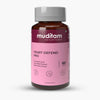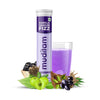How Does a Heart Attack Feel Like
Last updated on:
You sit back on the couch and are enjoying a peaceful moment until you feel an abnormal pressure that begins to fill your chest. Rather than just a bit of discomfort, it feels like someone is tightening the heart, making it difficult for you to breathe. Perhaps if you just ignore it, it is just gas; maybe you are just tired. But suddenly, pain radiates into the arms, into the back, and down to the jaw. You break out into a cold sweat; now your vision is blurred; the fear sets in. This is how a heart attack comes; it starts slowly, and then it seizes.
Heart attacks do not always follow dramatic, cinematic portrayals. Many people dismiss the first signs only to realize their heart was crying for help. It's important, therefore, to know what a heart attack feels like-it just might give you and your loved ones the chance to respond and save a life!
What Is a Heart Attack?
Essentially, a heart attack arises when blood supplied to specific parts of the heart is not reaching them. This results in deprivation of oxygen supply to the heart muscles. If unattended, that part of the heart can become damaged.
The predominant reason for having a heart attack is when the arteries become blocked. This usually happens over time and blocks fat, cholesterol, or other harmful substances.
What Does a Heart Attack Feel Like?
Everyone feels a heart attack differently. But there are some common signs to look out for:
1. Chest Pain or Discomfort
This is the most common sign. It may feel like:
- Pressure
- Tightness
- Fullness
- Burning or squeezing
It usually lasts more than a few minutes. Some people feel it goes away and then comes back.
2. Pain in Other Areas
Pain can travel to your:
- Left or right arm
- Neck or jaw
- Back or shoulder
- Upper stomach
This pain can feel dull, heavy, or sharp.
3. Shortness of Breath
You may feel like you can't catch your breath even when you're not doing anything.
4. Cold Sweat
Sudden sweating without any reason is a red flag.
5. Nausea or Lightheadedness
You may feel like throwing up, dizzy, or even faint.
6. Fatigue
Many people feel extremely tired for days or even weeks before a heart attack, especially women.
Also Read: 6 Signs of Heart Attack a Month Before
How Heart Attacks Feel Different in Men and Women
Men often feel classic chest pain, pain in the left arm, and shortness of breath.
Women may not have chest pain at all. Instead, they may feel:
- Unusual tiredness
- Trouble sleeping
- Nausea
- Pain in the back or jaw
Because these signs are not typical, women sometimes delay getting help, and that can be dangerous.
The Emotional Side of a Heart Attack
A heart attack isn't simply a physical occurrence; it tears at you mentally. Many folks will feel fright, anxiety, or a sensation of impending doom just before or at the time of the heart attack.
Some feel depressed afterward, some feel frightened, and some feel weak. Life seems uncertain. Who says it ought not to? Healing takes time, for the heart as well as the mind.
What to Do If You Think You're Having a Heart Attack
- Don’t ignore it. Even if you’re unsure, take it seriously.
- Call emergency help immediately. Don’t try to drive yourself.
- Chew an aspirin (only if you're not allergic and a doctor has suggested it before).
- Stay calm and rest until help arrives.
How to Take Care of Your Heart
Your heart works hard every second of your life. It deserves care and protection. Here are some simple ways to keep it healthy:
1. Eat Heart-Friendly Foods
- More fruits and vegetables
- Whole grains
- Less salt and sugar
- Healthy fats like nuts and seeds
2. Stay Active
Just 30 minutes of walking a day can help. Your heart loves movement.
3. Quit Smoking
It’s one of the biggest risks for heart attacks.
4. Manage Stress
Try breathing exercises, meditation, or simply spending time in nature.
5. Take Natural Support
Many Ayurvedic heart supplements have gained acceptance among the population, being regarded as natural agents in promoting heart health. The herbal preparation is said to counterbalance cholesterol, enhance blood flow, and prevent anxiety without posing any side effects. In other words, herbs such as Arjuna, Ashwagandha, and Guggul have been in use for hundreds of years in heart health.
Muditam is offering natural remedies to gently nourish your heart. Ayurvedic heart supplements can aid in the establishment of a strong heart that is peaceful and healthy when taken regularly.
Listen to Your Heart
Sometimes, your body whispers before it screams. A small discomfort, a little pain, unusual tiredness—don’t ignore these signs. Your heart is trying to tell you something. Whether you're young or old, fit or not, always take chest pain seriously. And even if you've never had symptoms, start protecting your heart today.
Conclusion
It all happens when everything is okay, and then suddenly there is a heart attack. However, how it feels, what to do in case one has a heart attack, and how to prevent it may empower you to save a life.
Don't wait for symptoms before you start caring for your heart. Get active, eat healthily, manage stress, and consider natural help such as Ayurvedic Heart Supplements.
Your heart is not just an organ, but where you carry all your love, your grief, and your dreams. Protect it. Because that is your true home.
You May Also Like:












